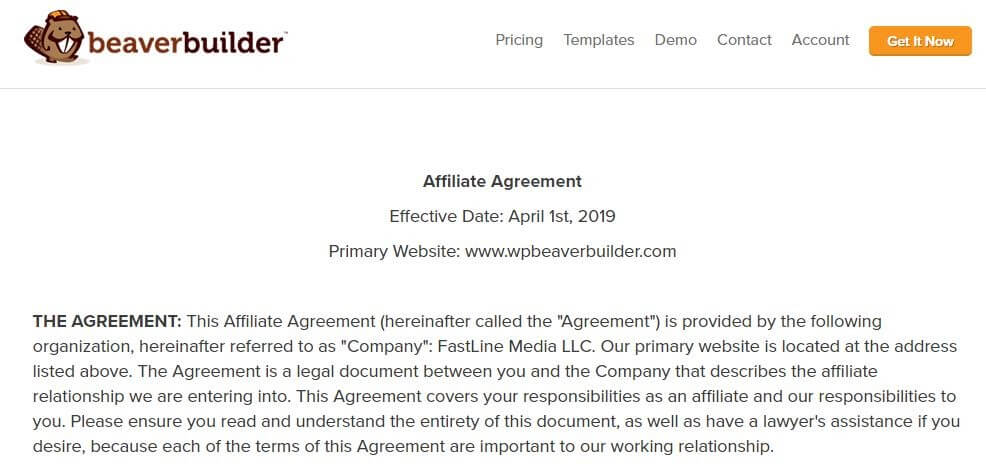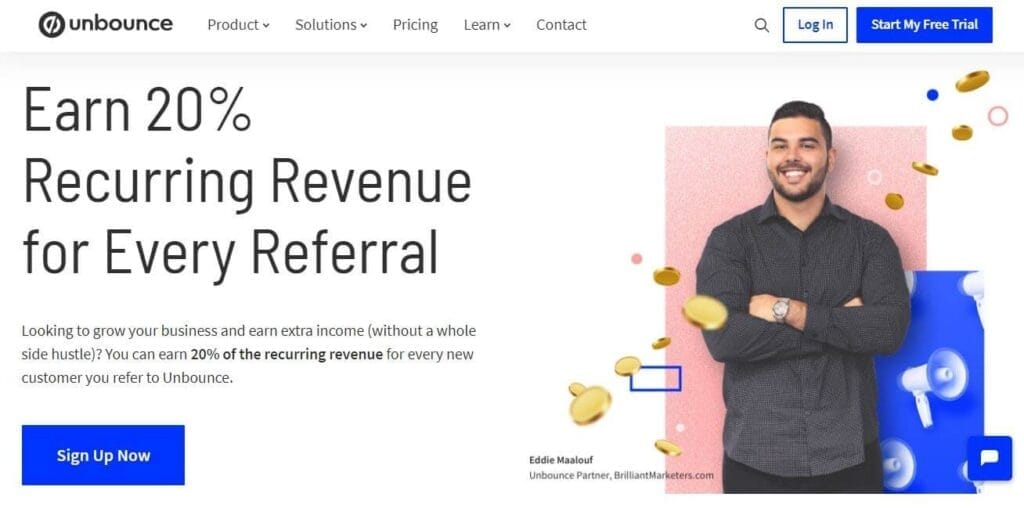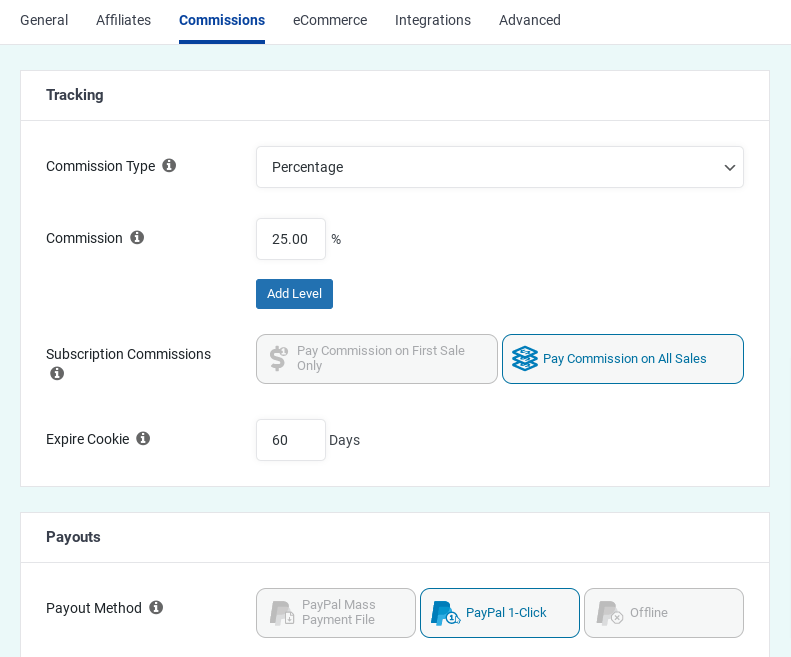Table of Contents
The fast-growing number of affiliate marketers has stiffened the competition for search engine rankings. Consequently, some marketers use dishonest techniques to rank higher and get faster results. When your partners get caught engaging in unethical strategies, however, your brand’s reputation and its reach can suffer, so if you want to work remotely to be able to accomplish all your goals, and if you have staff working remotely as well there is software for user activity monitoring so business can track what their employees work.
To avoid this, successful affiliate programs adhere to certain ethical marketing standards. Ethical marketing is the process of promoting goods and services through honest, trustworthy, and socially responsible techniques. It helps you maintain strong relationships with both your affiliates and your customers, and it doesn’t have to hurt your bottom line.
In this post, we’ve rounded up three tips to help you set up an ethical affiliate marketing program. Before we get to those, we’ll explain why it’s important to maintain high ethical standards. Let’s get started!
Why It’s Vital to Set Up an Ethical Affiliate Marketing Program
An ethical affiliate marketing program follows the principles of fair trade, fair payment, transparency, and accountability toward both customers and affiliates. Unfortunately, not all affiliate programs are built this way.
To attract affiliates, some programs may overcharge for their products or services in order to offer higher commissions. Others might turn a blind eye to affiliates who are using dishonest techniques.
However, running an ethical program is important because it can help you:
- Attract high-quality affiliates. Credible marketers are more likely to sign up for a program that will reward hard work and honesty. Establishing clear guidelines helps avoid misaligned incentives and unethical affiliates who do not add value to your company.
- Drive digital marketing revenue. According to a survey by Aflac, 92 percent of millennials are more likely to buy goods from businesses with ethical standards.
- Improve your products’ social proof. Having a legion of honest and trustworthy affiliates can grow your brand on various digital marketing platforms. What’s more, maintaining strong ethics builds trust among your affiliate partners and your target audience.
It’s also worth noting that many unethical practices can harm your reputation and prompt search engines like Google to flag your content (and that of your affiliates) as problematic. So there are a host of sound reasons to make sure you’re conducting your affiliate program in an honest and open way.
How to Set Up an Ethical Affiliate Marketing Program (3 Key Tips)
You’ve probably heard the saying that “communication is the most important form of marketing.” This is especially true for ethical affiliate marketing programs.
Being straightforward with your business’ ethics and values from the outset can create a culture of accountability and honesty among your affiliates. Here are three of the best ways to do that.
1. Clearly Define the Terms and Guidelines of Your Affiliate Program
Your affiliate network will affect your brand’s reputation. Therefore, you’ll want to clearly define the guidelines in your affiliate agreement to ensure that affiliates only implement practices that align with your business’ goals and ethics.
Your terms and conditions might include:
- Acceptance criteria. One way to avoid common mistakes when starting an affiliate program is to vet your affiliate partners carefully.
- Affiliate obligations. You can help affiliates understand your goals by communicating their responsibilities clearly.
- Promotion restrictions. You may want to prohibit certain forms of advertising that can jeopardize your brand’s reputation.
- Termination. It should be clear what lines affiliates cannot cross in order to continue working with your program.
Whatever your policies may be, it’s important to display them on your website in a clear and easy-to-understand way:

That way, potential affiliates can find this information upfront, and current affiliates will have an easy way to reference it.
2. Be Transparent About Your Payment Structure
Luring in affiliates with high commissions and empty promises is both easy and dangerous. This may attract black hat marketers who are only looking for get-rich-quick schemes. To avoid misunderstandings, it’s important to be straightforward with your payment structure from the beginning.

This starts with determining your commission rates. For affiliate marketers, these usually range from five to 30 percent. However, the rate itself is less important than keeping your commission structure simple, fair, and easy to understand.
You may want to consider these questions when determining the commissions you’ll offer:
- What are your profit margins like?
- How much do your competitors pay?
- What incentives and bonuses could you offer?
Note that you don’t want to set high commissions at the beginning of your program, only to lower them months later. This will likely result in disappointed affiliates and a loss of trust.
The good news is that with Easy Affiliate, you can easily set up clear commission levels for your affiliate program. You can create a commissions structure that will properly incentivize affiliates, without eating up too much of your profit margin:

Once you’ve done that, you’ll want to be transparent about all of your payment policies. This includes how and when affiliates will be paid, any conditions required for payment, and so on.
3. Educate Your Affiliates on How to Avoid Black Hat Practices
A lot of marketers are competing for consumers’ attention, so some affiliates may use black hat marketing techniques to gain more commissions. This type of marketing employs deceptive (and sometimes illegal) tactics to manipulate web traffic. This includes content spamming, keyword stuffing, hidden content, link farming, and cloaking.
As mentioned earlier, when your website is caught using such tactics, Google may ban your site from appearing in search results. The same effect can also harm your affiliates’ content. To help them steer away from illicit practices, you may consider the following:
- Create a visible page for your affiliate program on your website. This page can serve as your affiliates’ landing page, where they can find answers to all of their questions. On this page, you can offer resources (e.g., training videos, webinars, and related links) to help them create content that drives high-quality traffic. You may also include tools that will empower your affiliates to create a positive social impact.
- Educate affiliates on black hat practices. The best defense is knowledge, so make sure your affiliates know what unethical practices are and how to avoid them.
- Provide one-on-one consultations. Being available and responsive to your affiliates’ questions will help communicate your business’ core values, and build honest relationships with your partners.
Using Easy Affiliate, you can create a personalized dashboard for each affiliate. This vital resource will give them an easy way to access all the educational materials you provide, as well as monitor their performance and assess the effectiveness of their content.
Conclusion
Maintaining ethics and integrity in every stage of your affiliate marketing program is important for promoting your business without tarnishing your brand or getting penalized by search engines. These practices will also protect you from dishonest marketers and help you build a network of high-quality affiliates who use honest and effective strategies.
If you’re ready set up an ethical affiliate marketing program, here again are the three most important steps to take:
- Clearly define the terms and guidelines of your affiliate program.
- Be transparent about your payment structure.
- Educate your affiliates on how to avoid black hat practices.
Have you encountered any unethical affiliate marketing practices? Share your stories and tips with us in the comments section below!
If you liked this post, be sure to follow us on Twitter, Facebook, and LinkedIn! And don't forget to subscribe in the box below.



Leave a Reply